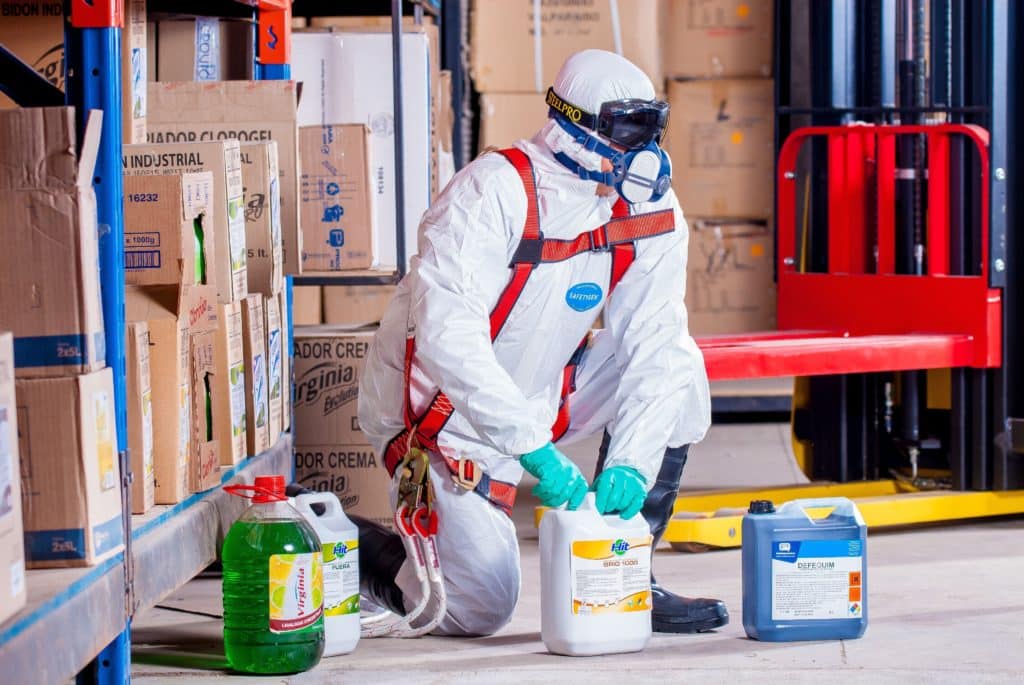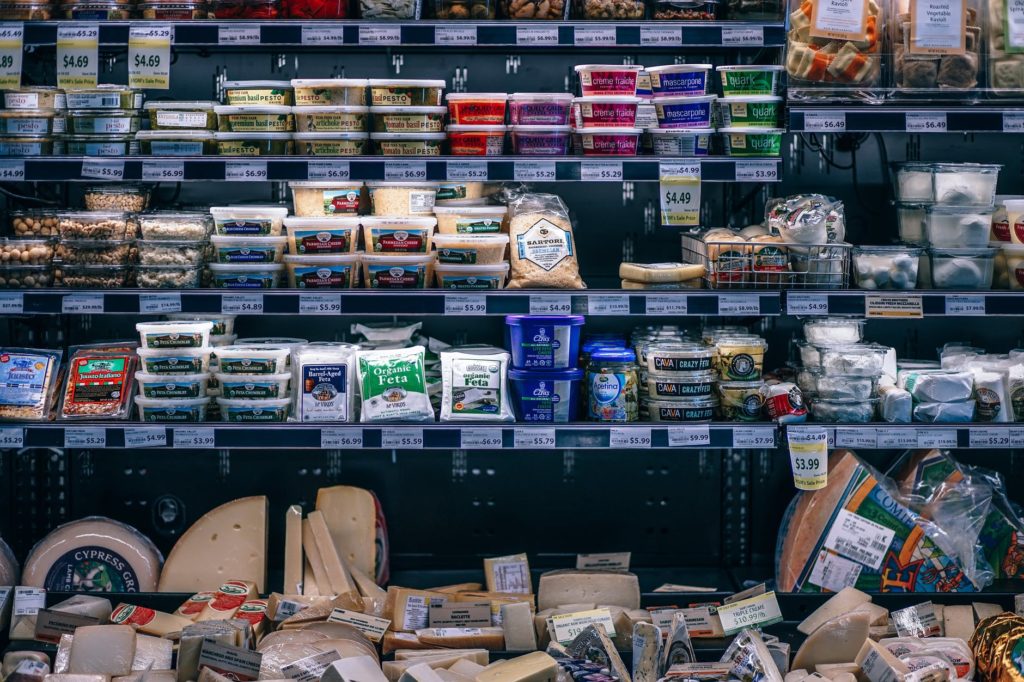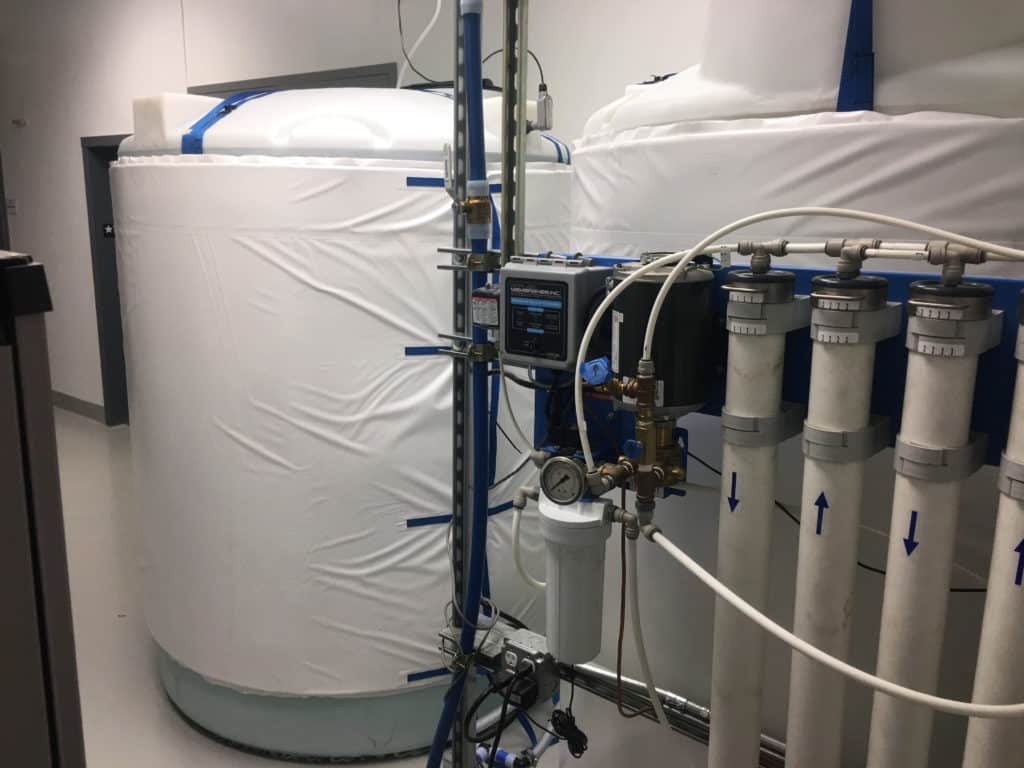Commercial environments typically utilize two types of cooling: comfort cooling and process cooling. Comfort cooling is what we are typically most familiar with– think air conditioning and other cooling systems used to keep living and work places at comfortable temperatures. While most people aren’t as familiar with process chilling, we all regularly use items that couldn’t exist without the help of that type of system.

Put simply, process cooling removes unwanted heat from processes to keep things running smoothly.
Some common products that rely heavily on this kind of cooling are: chemicals, beer and other fermented beverages, dairy products, plastic products, printed materials, jewelry, most metal items, and internet technology.
Chemical Products

Think of the chemicals you use at home. Just a few that come to mind are rubbing alcohol, antifreeze, battery acid, white-out, and glass cleaner.
The production of these goods require extreme care. One of the most challenging aspects of processing, handling and storing chemicals is maintaining a consistent temperature. Temperatures even a few degrees above “ideal” can quickly damage chemical products and create a chemically hazardous environment.
Fermented Beverages
If you’ve ever enjoyed a refreshing beer, you have process cooling to thank.
High-quality brews require careful temperature control during the fermentation process. Ideal beer fermentation temperature is between 68 and 72° F. For lager, ideal fermentation temps are between 45 and 55°F. Fermenting above these temperature ranges will create extremely fruity-flavored esters and harsh-flavored fusel alcohols. Additionally, high temps could slow or stop fermentation altogether.
Dairy

Cheese, ice cream, milk, yogurt, you name it! It all requires careful temperature control to prevent unwanted bacteria growth and undesirable textures.
Cooling is also used during dairy production to keep both the products and equipment from overheating.
Plastic
We are surrounded by plastic. Containers, toys, electronics, furniture, office supplies, beauty items and even clothing almost always have some sort of plastic element.
Process engineers working in plastics know that cooling effectiveness during extrusion and molding makes the difference between a commercially viable product or an expensive misshapen pile of spent polymers (and dissatisfied customers). Achieving and maintaining ideal temperatures is critical to high-quality plastic goods.
Printed Materials
Even in an era of e-readers, there’s still printed goods all around us: packaging, magazine, books, brochures, posters, and newspapers, just to name a few.
During the printing process heat is generated due to friction within the system. In order to avoid damage or slowed production, cooling is vital.
Jewelry, Coins, and Badges
While not everyone is familiar with electrical discharge machinery (EDM), most people probably have a piece of jewelry, decorative buckle, metal badge, or coin that’s been manufactured with the help of EDM. EDM is also used to create the intricate cuts and holes needed for certain technology.
EDM uses electrical discharges to shape the materials being cut to the desired measurements. This process is extremely accurate, and is usually used on hard materials. The water used in this process can heat up very quickly, requiring robust cooling solutions to maintain the ideal temperature for optimal performance. During the EDM process, some metal enters the water as small particles. Deionized water helps to promote a higher metal removal rate and enhances the machine’s capacity to deliver a more precise cut.
Metal Items
Welding is a crucial part of creating kitchen appliances, buildings, cars, and more. Essentially, if it has a metal element, it probably requires welding.
Because welding uses such extreme high temperatures, effective cooling is critical to a successful weld. When welding equipment is properly cooled, there is decreased equipment downtime and higher, more uniform quality.
Internet Technology, Surgery and Entertainment
Ever wondered how internet data can be transmitted from one computer to millions across the country or even the world? Internet data is comprised of a series of 1’s and 0’s which are communicated via a laser beam turning on (1) and off (0). These 1’s and 0’s from the laser are carried through fiber optic cables at close to the speed of light (299,792,458 meters per second).
Other popular and common applications of laser technology include surgery (laser eye surgery), and entertainment. DVD and Blu-Ray players use lasers to read information off of disks.
Due to the high temperatures that come with laser use, a cooling system is used to mitigate heat and stabilize equipment for optimal laser performance. Cooling helps extend the lifespan of equipment by preventing overheating. Maintaining consistent temperatures also preserves the accuracy of the laser for longer periods of time.
Cooling from North Slope Chillers

For each of the products and processes listed above, proper cooling can be the difference between a top product and damaged goods. North Slope Chillers offers high-quality, dependable chiller systems and accessories, including custom options. For more information about our product offerings, give us a call at (866) 826-2993.

